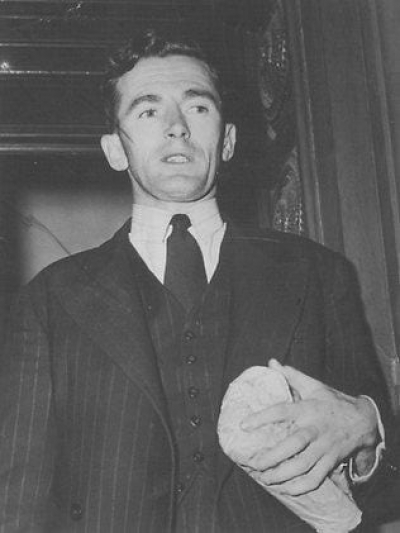Frank Hardy
The portrait likely to emerge in this article will be more that of a trend in Australian literature than of a writer named Frank Hardy.
Most people know a good deal about Frank Hardy, the writer and the man, little or nothing is known about the social forces which created him or his part in the ideological struggle which has characterised Australian literature for 100 years.
100 years? He’s not that bloody old, surely!
But I did know Mary Gilmore well and Henry Lawson’s widow, Bertha, and the first writer I tried to model myself upon was Lawson, especially his early writings about the great economic depression – 1888–93 (‘Faces in the Street’, ‘Arvie Aspinall’s Alarm clock’, etc.).
... (read more)La Trobe University Essay | 'A BIG LIE: Manning Clark, Frank Hardy and "Fictitious History"' by James Griffin
‘People are not entitled in a civil society to pursue a malicious campaign of character assassination based on a big lie.’ This was Andrew Clark, son of the historian Manning Clark, expressing understandable outrage on behalf of his family. The issue was the infamous allegation, based on nebulous evidence, that Manning was ‘an agent of Soviet influence’ and had been awarded the Order of Lenin. Unfortunately, as the Clarks will know, the big lie, even when refuted, spreads across generations. Although the onus is supposed to be on the accusers to prove their allegations, in reality it is easily, plausibly reversed.
... (read more)
